- europages
- >
- COMPANIES - SUPPLIERS - SERVICE PROVIDERS
- >
- small batch
Results for
Small batch - Import export
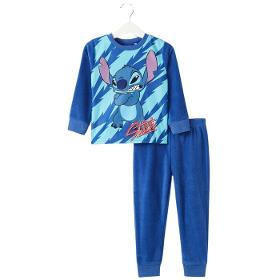
KIDDYSTORES
France
Kiddystores online sales of clothes for babies and children strictly to the trade. Kiddystores, supplier and wholesaler of licensed and no name clothing for children and babies. Kiddystores is the European specialist wholesaler for children's clothing. Off-the-peg children's clothes in bundles or small batches.
Request for a quote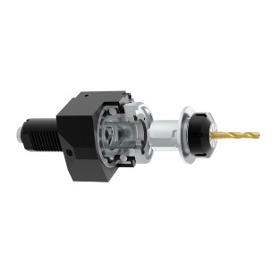
EWS WEIGELE GMBH & CO. KG
Germany
The rapid change system EWS-Varia allows to set-up a modern CNC lathe or a turning milling center – and this flexibly. A tool change will just take 20 seconds, which is an unbeatable argument especially in small batch productions whenever it is about reducing the set-up time and thus increasing the productivity. The advantages, however, are also evident in large batch productions. Preset twin tools lie at the machine, thus significantly reducing the down-times. A further advantage is provided by the variety of adaptations; so the optimal tool clamping can be selected for each operation. The inserts available include: Collet chuck holders Weldon/Whistle Notch Milling arbors Morse tapers Hydro extension Shrink adaptations The most important advantage is certainly created by the easy handling. The inserts can be changed with just one hand without counter pressure by the spindle.
Request for a quote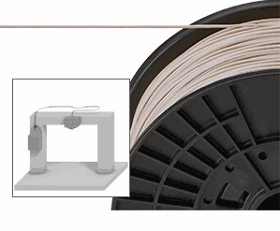
IGUS® GMBH
Germany
igus® presents world's first tribological 3D filament for 3D printers. The tribological 3D printing material is up to 50 times more abrasion-resistant than conventional 3D print materials igus® has been researching the 3D printer filament field to provide its customers with even more flexibility. Real useable parts can now be produced for prototyping. At the moment we offer two materials: the highly wear resistant iglidur® I170-PF and the flexible iglidur® I180-PF. igus®' 3D printer material starter kits are now available in weights from 25 g and diameters of 1,75 mm - 3 mm. Typical applications:Prototype construction, small batches, test installations Delivery program: Delivery program: Wear linear: v= 0,1 m/s; p= 1 MPa; l= 5 mm Wear pivoting: v= 0.01 m/s; p= 1 MPa; ß= 60 igus® presents world's first tribological 3D filament for 3D printers. The tribological 3D printing material is up to 50 times more abrasion-resistant than conventional 3D print materials igus® has been researching the 3D printer filament field to provide its customers with even more flexibility. Real useable parts can now be produced for prototyping. At the moment we offer two materials: the highly wear resistant iglidur® I170-PF and the flexible iglidur® I180-PF. igus®' 3D printer material starter kits are now available in weights from 25 g and diameters of 1,75 mm - 3 mm. Typical applications:Prototype construction, small batches, test installations igus® presents the first tribo filament for 3D printers The new 3D printing materials are up to 50 times more abrasion-resistant than conventional 3D print materials. Complete processing instructions for iglidur® I170-PF (PDF) Complete processing instructions for iglidur® I180-PF (PDF) iglidur® |180-PF Hotend temperature: 220 - 250 °C Bed temperature: 90 - 110 °C Excellent wear behaviour Material table Colour white Moisture absorption at 23 °C and 50 %r.h. 0,3 weight-% Max. water absorption 0,9 weight-% Max. long term application temperature +80 °C Max. short term application temperature +90 °C Minimum application temperature -40 °C Delivery program: iglidur® |170-PF Hotend temperature: 220 - 250 °C Bed temperature: 90 - 110 °C Outstanding wear behaviour of the tribo filaments Harder to process Material table Colour yellow Moisture absorption at 23 °C and 50 %r.h. 0,5 weight-% Max. water absorption 1,6 weight-% Max. long term application temperature +75 °C Max. short term application temperature +85 °C Minimum application temperature -40 °C Delivery program: Y = rate of wear [µm/km] * moulded Wear linear: v= 0,1 m/s; p= 1 MPa; l= 5 mm Y = rate of wear [µm/km] * moulded Wear pivoting: v= 0.01 m/s; p= 1 MPa; ß= 60
Request for a quote
MOH D.O.O
Slovenia
fast production of individual pieces and small batches under competitive conditions production of medium and large series machining of 5axle components up to 920mm and 800kg machining of 3axle components up to 800 x 2200mm and 1800kg bar machining up to fi 82mm machining from sawn raw materials or castings, turning forgings up to 350mm machining of turbine & compressor components
Request for a quote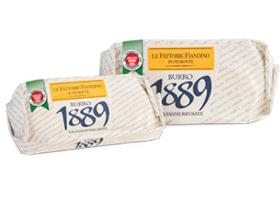
FORATIA EUROPE OU
Finland
Unsalted Butter Produced By Le Fattorie Fiandino In Piemonte, Italy Named For The Company’s Founding Year, This Award-Winning Butter From Fiandino Uses The Best Piedmontese Milk To Create A Small Batch Butter That Is Truly Unique. It Starts With The Freshest Piemontese Milk Collected Daily, Centrifuged To Separate The Cream And Then Rested Up To 72 Hours. With Its Voluptuous Texture And Superb Flavor, This Award Winning Butter Is Prized By Discerning Chefs And Home Cooks Alike. Taste Sweet, Round, Full To The Palate But Not Aggressive. The Aftertaste Is Creamy, Sweet, Round And Pleasant Ingredients Centrifuged Cream Milk Origin Italy – Piemonte Producer Fattorie Fiandino – Villafalletto (CN) – Piedmont
Request for a quote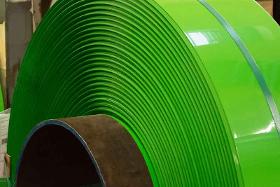
HFP BANDSTAHL GMBH & CO KG
Germany
We are able to produce various shades of high-quality decorative polyester top coats in small and very small batches using a paste system – resulting in a very competitive pricing for our customers.
Request for a quote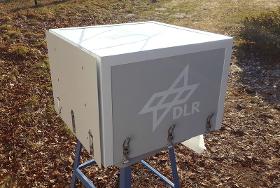
TECHNO-COMPOSITES DOMINE GMBH
Germany
Housing for satellite positioning devices TC designed and constructed a weatherresistant housing in a very small batch for highly sensitive satellite positioning measuring devices. Do you already have an idea of what we could do for you?
Request for a quote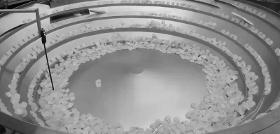
HO-MA GMBH
Germany
With vibration sorting, small batches / quantities can be processed individually up to 200 pieces per minute. Depending on the type of object, we recommend different designs / types – conical, cylindrical or stepped. Surfaces are preferably glass bead blasted or metaline coated (both variants have FDA approval). Mounting types are medium voltage and external voltage.
Request for a quote
TECHNO-COMPOSITES DOMINE GMBH
Germany
Radome antennae TC is working with the customer to develop suitable solutions for antenna systems. This ranges from small batches all the way up to largescale production, naturally including the necessary mounting and connecting parts such as cover components with cable bushing, brackets for mobile phone masts, etc. The parts are processed on our highprecision 5axis CNC machinery.
Request for a quote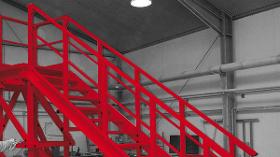
TECHNO-COMPOSITES DOMINE GMBH
Germany
Do you need safe and corrosionresistant access systems for your operations? And do these stairs also need to be movable? Then get in touch. We can design and manufacture special solutions as oneoff commissions or small batches, or a standard solution in larger quantities. Made of glass fibrereinforced plastic profiles, our mobile stairs are suitable for using in corrosive environments or for sites where a stairway needs to have an electrically insulating effect.
Request for a quote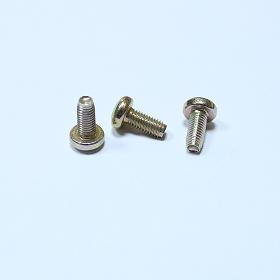
OTTO EICHHOFF GMBH & CO. KG
Germany
Large Quantities: produced as cold formed parts (so-called multi-station presses), which require high output volumes in order to achieve a reasonable price parts Small Quantities: Produced as turned parts - the economic adjustment to small batch sizes Fields of application: For thermoplastics, duroplastics, light alloys, metal compounds. Industrial consumers: Electrical industry, plastics processing industry, sheet metal processing industry, telecommunications, tank- and container construction.
Request for a quote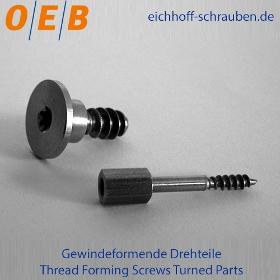
OTTO EICHHOFF GMBH & CO. KG
Germany
The economic adjustment to small batch sizes, we meet with our turned parts for the direct assembly in plastics and die-cast products. Any thread forms such as, thread-tapping (DIN7500), thread cutting (DIN 7513-7516) or KTG for direct screw in plastics are realized cost-effectively. Advantage is the elimination of high tooling costs, since no counter-thread in the workpiece (eg threaded inserts, nuts, etc.) is required because the direct assembly takes place directly into the workpiece. Only a given tube is required in order to screw it directly. Our turned parts replace previously cold formed parts used (so-called multi-station presses) which require high output volumes in order to achieve a reasonable price parts.
Request for a quote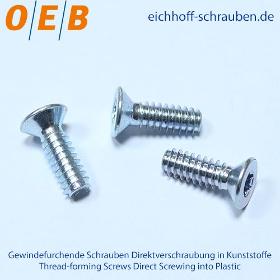
OTTO EICHHOFF GMBH & CO. KG
Germany
PT screws for thermoplastics: Thread rolling screws for direct screwing into plastics, Thread 30° or 60° KTG screws for thermoplastics: Single-start or double-start thread (high, low) Thread rolling screws are extruded for larger batch sizes and turned for small batch sizes (Turned parts for direct screwing) High tensile and highly stressable connection of thermoplastics with considerably longer life endurance Thread rolling without chips and loss of material Minimum radial tension, large thread coverage Process-reliable due to torsion strength Shorter and slimmer screws are possible. Materials: Steel, case-hardened Quenched and tempered steel 1.5523 tempered to 1000 +200 N/mm², high-grade steel 1.4567, other materials on request Length: 3 – 160 mm (at lengths from 60 mm only partial thread lengths 4 x d are possible) Thread diameter: 1.6 – 10 mm Special dimensions on request Batch sizes: Standard ex-stores Special screws from 30,000 pieces
Request for a quote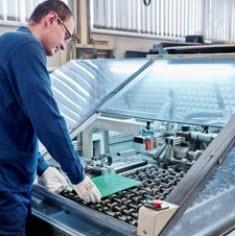
WM ELTAR SP. Z O.O. SP. K.
Poland
We are one of the leading Polish PCB manufacturers for many electronic industries. Since 1981, we have been constantly improving technology and machinery park. We specialize in the production of doublesided and singlesided PCBs on laminates FR4, MC PCB, CEM3T. We produce 2,000 sqm of PCBs monthly. We carry out medium and small production batches including 48H express orders of prototypes.
Request for a quote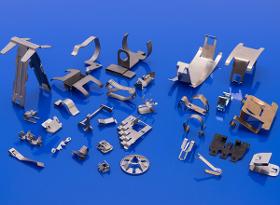
DIETZ GMBH
Germany
With laser generation, components are built up layer by layer from powdered metallic materials used in serial production such as 1.2709 steel or 1.4543 steel. Thanks to state-of-the-art technology, this enables us to transfer your computer-generated 3D/CAD models reliably over to their physical form. Here, thin coats of the powder materials are applied to a base object before being melted using a laser into the desired contour. This process is continued on a revolving basis until the workpiece is complete with the final geometric form and the relevant functional properties. Incidentally, we reclaim excess powder material during this process and use all of it for later productions again. Our services in sample development also include technical springs, which we produce in small batches for your sample application. Traditional sample development services are a new addition to our portfolio. Here, we produce a small-scale series of your bent strip parts from original materials.
Request for a quote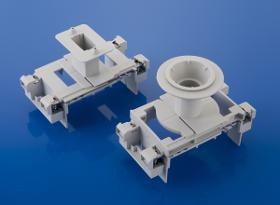
DIETZ GMBH
Germany
We can produce the parts you require using specific tools or on special-purpose machines. We produce complex forms and assembly parts with strip thicknesses of 0.10 to 3.00 and with strip widths of up to 100 mm – depending on the material used. The manufacturing processes that we offer include: Punching, forming, embedding, welding, bolting, riveting and mounting. We perform the assembly of small batches by hand, while larger volumes are performed automated if you so wish. Our hybrid sub-assembly production includes the over-moulding of punched parts made of wire or metal with a variety of plastics or silicones. In order to ensure that the desired braking element features optimum properties, we make use of both the temperature durability and the haptic advantages of silicone and the weight advantage of plastic when combining these materials in this fashion. Guide tube assemblies, a combination of springs and tubes, are part of the hybrid component portfolio.
Request for a quote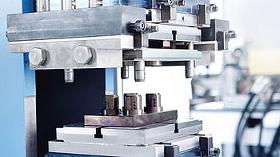
ZIMMER GMBH KUNSTSTOFFTECHNIK
Germany
In the area of elastomer technology, the Zimmer Group uses the most modern production processes to manufacture sophisticated workpieces from elastomers. In addition to the transfer molding process, in which the elastomer is placed in a mold, pressed into shape with a die and vulcanized under pressure and heat, we also use the injection transfer molding process. Here, the starting materials are pressed into the mold on an injection molding machine and vulcanize out there. With these two processes, we process a wide range of elastomers such as NBR, silicone, EPDM, FPM or polyurethane. In terms of quantities as well as dimensions, the sky's the limit, because we can manufacture almost any quantity required, from special solutions in quantities of one to medium-sized small batches and large series of more than 10,000 units.
Request for a quoteDo you sell or make similar products?
Sign up to europages and have your products listed
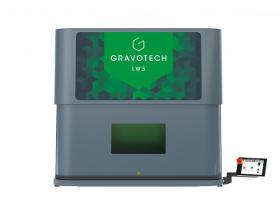
GRAVOTECH
France
LARGE MARKING POSSIBILITIES With its 3-sided door, the LW3 benefits from the best inside height dimensions and can securely envelop and mark parts up to 628 mm high. Thanks to its compatibility with our Fiber, Hybrid, Green industrial laser series, the LW3 can mark with high precision nearly every metal or plastic surfaces on its special positioning table. VERSATILE From unique identification marking, to multi-level engraving, and matrix marking on a batch of small to medium parts, this industrial laser station can mark your large part at several positions, and levels. Add a 3D module to your LW3 laser to mark sloped parts. INDUSTRY ORIENTED This laser marking machine is the only large laser engraver of the market with an attached touchscreen allowing the operator to easily manage the direct part marking process. In addition to the easy installation, manutention, and silent/ergonomic door opening, this class 1 laser stands out with its exceptional build quality.
Request for a quote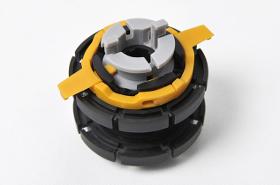
RPWORLD
China
Urethane casting is a fast and cost-effective method of producing small series from a silicone mold. A silicone mold is made with the help of a prototype which serves as the basis for the duplication process of the original piece. Thanks to the flexibility of the silicone, complex intermeshing geometries can be achieved without demoulding problems. The base material used for the reproductions is a liquid polyurethane resin which with the use of additives can simulate the properties of a wide variety of plastics. Between 15 and 30 parts can be produced depending on the requirements of the material and surface finish. This method is ideal for the production of small batches and prototypes in which the production of expensive injection molding tools is not feasible.
Request for a quote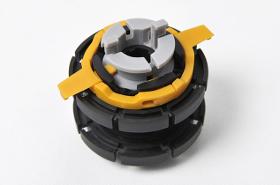
RPWORLD
China
Urethane casting is a fast and cost-effective method of producing small series from a silicone mold. A silicone mold is made with the help of a prototype which serves as the basis for the duplication process of the original piece. Thanks to the flexibility of the silicone, complex intermeshing geometries can be achieved without demoulding problems. The base material used for the reproductions is a liquid polyurethane resin which with the use of additives can simulate the properties of a wide variety of plastics. Between 15 and 30 parts can be produced depending on the requirements of the material and surface finish. This method is ideal for the production of small batches and prototypes in which the production of expensive injection molding tools is not feasible.
Request for a quote
RPWORLD
China
Urethane casting is a fast and cost-effective method of producing small series from a silicone mold. A silicone mold is made with the help of a prototype which serves as the basis for the duplication process of the original piece. Thanks to the flexibility of the silicone, complex intermeshing geometries can be achieved without demoulding problems. The base material used for the reproductions is a liquid polyurethane resin which with the use of additives can simulate the properties of a wide variety of plastics. Between 15 and 30 parts can be produced depending on the requirements of the material and surface finish. This method is ideal for the production of small batches and prototypes in which the production of expensive injection molding tools is not feasible.
Request for a quote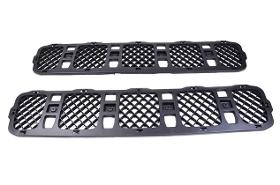
RPWORLD
China
Urethane casting is a fast and cost-effective method of producing small series from a silicone mold. A silicone mold is made with the help of a prototype which serves as the basis for the duplication process of the original piece. Thanks to the flexibility of the silicone, complex intermeshing geometries can be achieved without demoulding problems. The base material used for the reproductions is a liquid polyurethane resin which with the use of additives can simulate the properties of a wide variety of plastics. Between 15 and 30 parts can be produced depending on the requirements of the material and surface finish. This method is ideal for the production of small batches and prototypes in which the production of expensive injection molding tools is not feasible.
Request for a quote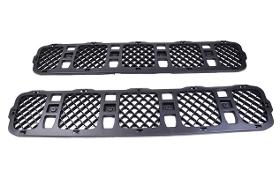
RPWORLD
China
Urethane casting is a fast and cost-effective method of producing small series from a silicone mold. A silicone mold is made with the help of a prototype which serves as the basis for the duplication process of the original piece. Thanks to the flexibility of the silicone, complex intermeshing geometries can be achieved without demoulding problems. The base material used for the reproductions is a liquid polyurethane resin which with the use of additives can simulate the properties of a wide variety of plastics. Between 15 and 30 parts can be produced depending on the requirements of the material and surface finish. This method is ideal for the production of small batches and prototypes in which the production of expensive injection molding tools is not feasible.
Request for a quote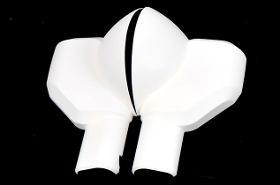
RPWORLD
China
Urethane casting is a fast and cost-effective method of producing small series from a silicone mold. A silicone mold is made with the help of a prototype which serves as the basis for the duplication process of the original piece. Thanks to the flexibility of the silicone, complex intermeshing geometries can be achieved without demoulding problems. The base material used for the reproductions is a liquid polyurethane resin which with the use of additives can simulate the properties of a wide variety of plastics. Between 15 and 30 parts can be produced depending on the requirements of the material and surface finish. This method is ideal for the production of small batches and prototypes in which the production of expensive injection molding tools is not feasible.
Request for a quote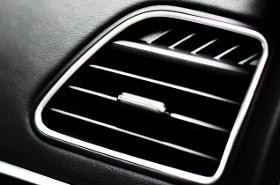
RPWORLD
China
Urethane casting is a fast and cost-effective method of producing small series from a silicone mold. A silicone mold is made with the help of a prototype which serves as the basis for the duplication process of the original piece. Thanks to the flexibility of the silicone, complex intermeshing geometries can be achieved without demoulding problems. The base material used for the reproductions is a liquid polyurethane resin which with the use of additives can simulate the properties of a wide variety of plastics. Between 15 and 30 parts can be produced depending on the requirements of the material and surface finish. This method is ideal for the production of small batches and prototypes in which the production of expensive injection molding tools is not feasible.
Request for a quote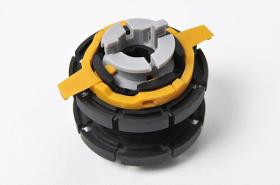
RPWORLD
China
Urethane casting is a fast and cost-effective method of producing small series from a silicone mold. A silicone mold is made with the help of a prototype which serves as the basis for the duplication process of the original piece. Thanks to the flexibility of the silicone, complex intermeshing geometries can be achieved without demoulding problems. The base material used for the reproductions is a liquid polyurethane resin which with the use of additives can simulate the properties of a wide variety of plastics. Between 15 and 30 parts can be produced depending on the requirements of the material and surface finish. This method is ideal for the production of small batches and prototypes in which the production of expensive injection molding tools is not feasible.
Request for a quote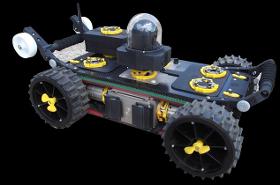
RPWORLD
China
Urethane casting is a fast and cost-effective method of producing small series from a silicone mold. A silicone mold is made with the help of a prototype which serves as the basis for the duplication process of the original piece. Thanks to the flexibility of the silicone, complex intermeshing geometries can be achieved without demoulding problems. The base material used for the reproductions is a liquid polyurethane resin which with the use of additives can simulate the properties of a wide variety of plastics. Between 15 and 30 parts can be produced depending on the requirements of the material and surface finish. This method is ideal for the production of small batches and prototypes in which the production of expensive injection molding tools is not feasible.
Request for a quote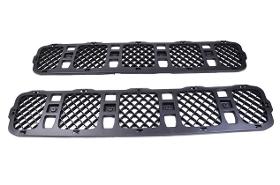
RPWORLD
China
Urethane casting is a fast and cost-effective method of producing small series from a silicone mold. A silicone mold is made with the help of a prototype which serves as the basis for the duplication process of the original piece. Thanks to the flexibility of the silicone, complex intermeshing geometries can be achieved without demoulding problems. The base material used for the reproductions is a liquid polyurethane resin which with the use of additives can simulate the properties of a wide variety of plastics. Between 15 and 30 parts can be produced depending on the requirements of the material and surface finish. This method is ideal for the production of small batches and prototypes in which the production of expensive injection molding tools is not feasible.
Request for a quote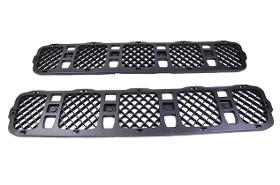
RPWORLD
China
Urethane casting is a fast and cost-effective method of producing small series from a silicone mold. A silicone mold is made with the help of a prototype which serves as the basis for the duplication process of the original piece. Thanks to the flexibility of the silicone, complex intermeshing geometries can be achieved without demoulding problems. The base material used for the reproductions is a liquid polyurethane resin which with the use of additives can simulate the properties of a wide variety of plastics. Between 15 and 30 parts can be produced depending on the requirements of the material and surface finish. This method is ideal for the production of small batches and prototypes in which the production of expensive injection molding tools is not feasible.
Request for a quoteResults for
Small batch - Import exportNumber of results
123 ProductsCountries
Company type
Category
- Milling - steels and metals (20)
- Automation - systems and equipment (8)
- Machine tools - metal machining (8)
- Electric and electronic components - machines for manufacturing (7)
- Electronic data processing - microcomputers (3)
- Pharmaceutical industry - machinery and equipment (3)
- Screws (3)
- Aluminium foil for packing (2)
- Containers, metal (2)
- Distilling - machinery and equipment (2)
- Labelling machines (2)
- Laser - cutting and welding machines (2)
- Measurement and control instruments (2)
- SMALL METAL PARTS (2)
- Adjustment - machine tools (1)
- Aluminium wires and cables (1)
- Assembly robots (1)
- Automation - advisory services (1)
- Beauty creams (1)
- Bending machine tools (1)